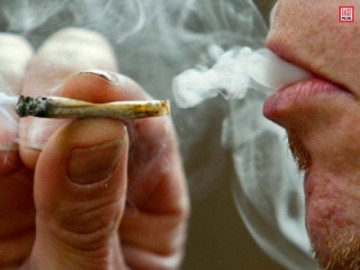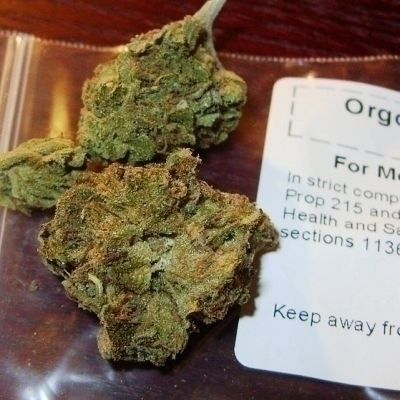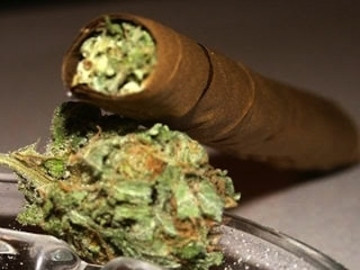The Impact of Marijuana Legalization on RI’s College Campuses
Friday, January 17, 2014
There may be consequences to health and counseling centers on college campuses as states consider marijuana legalization.
Despite changes to state law, federal rules still prohibit the possession, use, and sale of the drug on campuses in Colorado and Washington.
“The use or possession of marijuana is still not allowed on campus, or in the conduct of university business away from campus,” said University of Colorado Denver Chancellor Don Elliman in a written release shortly after Colorado residents passed a ballot initiative legalizing the personal, recreational use of marijuana. “We would like to remind the campus community that the amendment does not change existing University of Colorado campus policies.”
GET THE LATEST BREAKING NEWS HERE -- SIGN UP FOR GOLOCAL FREE DAILY EBLASTCollege officials cite the Drug-Free Workplace Act of 1988 and the Drug-Free Schools and Communities Act Amendments of 1989, as well as federal law that still prohibits the drug.
“It's so early into it,” said a university spokesperson, responding to how the change in state law affects student services.
In student handbooks across Rhode Island and Massachusetts, college officials make it clear that federal law prohibits the possession, use, or distribution of drugs and alcohol. Those campus policies won't change soon.
Anecdotally, rise in youth seeking substance abuse treatment
Christian Thurstone, an associate professor of psychiatry at the University of Colorado School of Medicine and medical director of one of Colorado's largest youth substance abuse treatment clinics, Denver Health's Substance Abuse Treatment Education & Prevention (STEP) Program, said there are some signs legalization would have an impact.
“We don't have great data, regarding pre/post November 2012,” the day it became legal in the state to smoke marijuana, Thurstone said. But he continued to say there were changes following medical marijuana's passage in 2009, revolving around increasing youth use rates and a decreasing perception of harm.
“Anecdotally, we're feeling more substance treatment admissions” at the treatment clinic, Thurstone said, enough to hire additional counselors in anticipation.
Marijuana causes concerns currently among some students
“We certainly see students who come in seeking assistance with cutting back, and realizing their use is out of control,” said Dan Graney, director of substance abuse prevention services at the University of Rhode Island.
“The hardest problem is getting them to see it's not the same as alcohol,” Graney said, contrasting the effects of each respective substance.
Thurstone, a member of the board of directors for the national organization Smart Approaches to Marijuana, a group opposed to the drug's legalization, said health professionals in Colorado were still waiting for numbers to quantify the impacts of legalization.
“We know it's young people who predominantly use marijuana.” For every year in age you can delay use, Thurstone said, the chances decrease they'll use the drug or become addicted.
Proponents of legalization claim the drug can be better regulated by controlling its cultivation and sale.
What can local college officials expect?
“As recipients of federal funds, it is important to recognize that independent of state rules, colleges and universities must comply with the Drug-Free Schools and Communities Act,” said Jason Kilmer, an assistant professor of psychiatry and behavioral sciences at the University of Washington and committee chair of the College Coalition for Substance Abuse Prevention, a state group comprised of colleges and universities in Washington.
Graney at URI similarly points toward federal law that would trump state legalization should it occur. “It doesn't really affect us one way or the other ... (since) we have to follow federal regulations.”
“We have seen a slight increase in use” since decriminalization last year in Rhode Island, Graney said, mostly among out-of-state students who believe the drug is legal. But those students caught on campus or by law enforcement still face the standard student conduct referral process.
“We let them know it's still not allowed on campus,” Graney said. Among substance use on campus, “alcohol is still the drug of choice, it's still the most abused drug.” But marijuana is second.
While there's a perception of widespread prevalence, that's certainly not the case according to Graney.
In a written article last spring after the voter-approved initiatives in Washington and Colorado, Kilmer said research questions raised by legalization include how youth use may be affected, whether increased availability results in more use independent of age group, and whether legalization will curb illicit sales.
“I would think that, if it's legalized, use would come up,” Graney said, although the difference may not be significant. “I don't know how many people who don't already smoke it would turn around and start smoking.”
Related Slideshow: Marijuana Use in the New England States
According to data collected by the Substance Abuse & Mental Health Services Administration, New Englanders are among the nation's top marijuana users in the country. See how the indivdual states compare in the slides below:
Related Articles
- NEW: Bill Would Legalize Marijuana in Rhode Island
- Leonardo Angiulo: MA Court Takes Hit of Justice in Marijuana Rulings
- RI State Report: Marijuana Decriminalization & Safer Schools
- NEW: Medical Marijuana ‘Consultancy’ Shut Down By Dept. of Health
- RI Dept. of Health Approves First Medical Marijuana Dispensary
- Newport Manners + Etiquette: Marijuana Manners
- The Scoop - Whitehouse Talks State and Federal Marijuana Laws
- Marijuana Use in the New England States
- PODCAST: The Highest Marijuana Prices in New England by State
- NEW: Patrick Kennedy Opposed to Legalization of Marijuana
- New England States With The Highest Marijuana Arrest Rates
- State Report: Medical Marijuana, RI’s Business Ranking & Obama Supports Cicilline
- NEW: Brown to Host Debate on Marijuana Legalization on April 23
- Will Rhode Island Be The Next State To Legalize Marijuana?
- RI’s Own Miss Universe Olivia Culpo Advocates for Medical Marijuana















